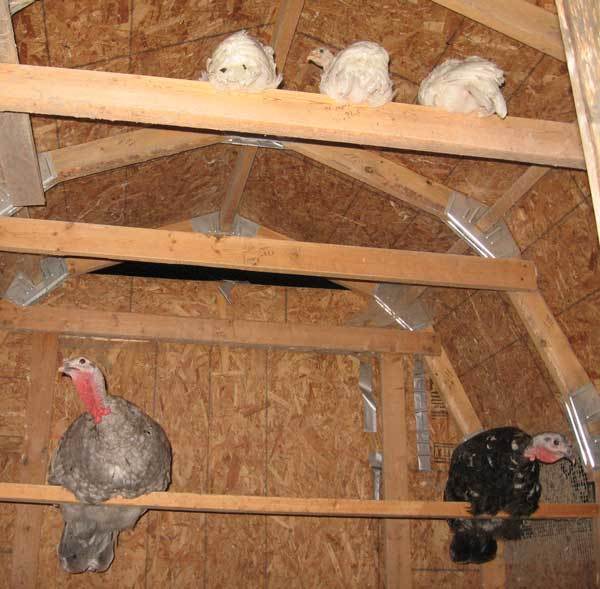Kacey I15
In the Brooder
- Jun 8, 2015
- 73
- 1
- 43
Just walked outside to see her in the tree roosting wasn't sure if I should leave her be or bring her in coop I was wondering what most of you would have done I did bring her in the coop.
Follow along with the video below to see how to install our site as a web app on your home screen.
Note: This feature may not be available in some browsers.
I got them for fun and couldn't eat them...as my husband says I am a city girl lol. My husband built a wonderful roost and I was so excited for it and they loved it initially...the roost is at 5ft, with nice space and a roof over that. From what I read thought it would work thru winter and figured I could add sides if needed (we are in a wooded area so wind is blocked). Then the one of their legs got injured and I realized the issue. We built a lower roost and I started physically putting him on to get used to it and I woke up in am and he had flown to higher roost. I was shocked and I physically couldn't get him down from there he had to fly. He made it without snapping a leg. I will block the higher roost so they can't get to it. Right now while it is still warm and no snow I they are just sleeping in corners of the yard (they are fenced in with my chickens but the chickens have a small coop not big enough for turkeys) I didn't know they were BB when we got themI heard their life expectancy isnt long either. Thank you for your response I will not even bother with a plank.

 Also helps to provide some "day roosts" to decrease any "temptation":
Also helps to provide some "day roosts" to decrease any "temptation": 
Wow very cool! Thank you for sharing!If you don't have raccoons, or owls, or ice storms in the winter? Probably not a problem. Ours were returned to the shed (bow and arrow to shoot a leader over the occupied limb - followed by nylon cord on which a couple of, punched through, empty, gallon water jugs had been "attached" - point spotlight at ground where the "landing"/capture zone was defined). Run the gallon jugs along occupied limb (one person on each end of the line - sliding jugs into roosting turkey(s)) - turkeys fly into light and back to the shed they'd go. Once had our first two jennies parked on top of the chimney with a severe thunderstorm rolling in (that was an interesting removal job). However, after the first month of absolutely consistent requirement that the shed was "home roost" - never have had another problem (adult hens do the instruction of their poults - no need for human intervention in over 10 years - and there are 60-80 ft. Hickories in runs and surrounding runs).
Also helps to provide some "day roosts" to decrease any "temptation":

we have both raccoons and at least one ,good sized, owl real close by. What harm would either do to a turkey?
we have both raccoons and at least one ,good sized, owl real close by. What harm would either do to a turkey?